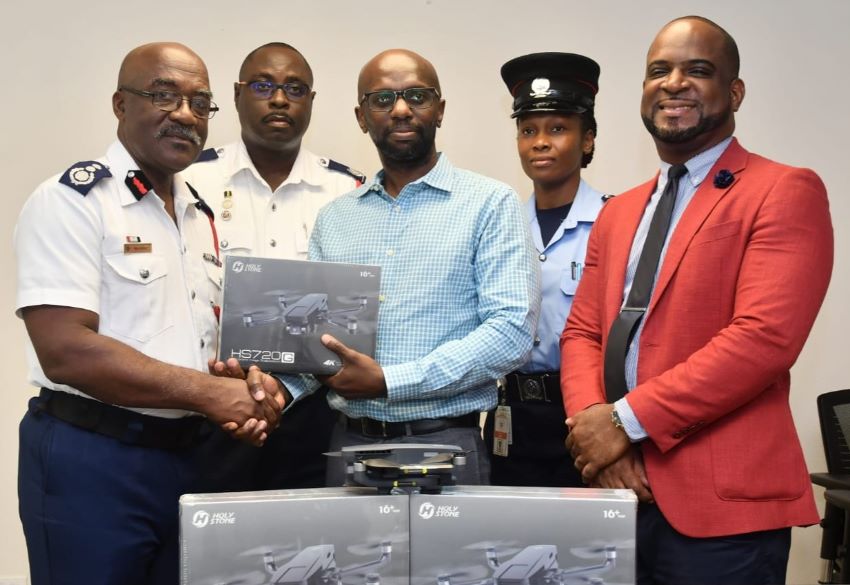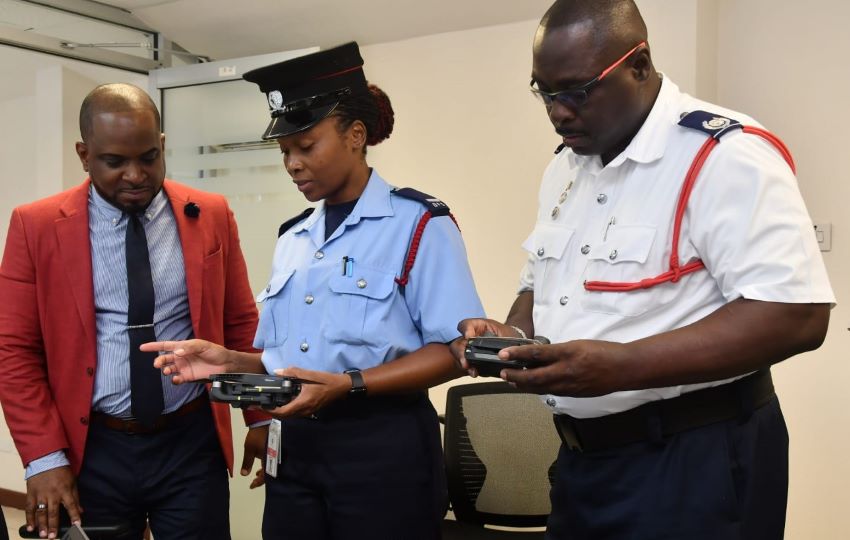
The Barbados Fire Service (BFS) today received four drones from the Centre for Biosecurity Studies, The University of the West Indies (UWI), Cave Hill Campus, to assist in the fight against fires.
Speaking during the presentation at the Centre, Chief Fire Officer, Errol Maynard, said the areas of fire-fighting and disaster management had evolved significantly over the years.
“We have introduced drone technology, AI (artificial intelligence) and all sorts of information technology into the industry to improve it and keep our people safe,” he said.
Mr. Maynard outlined that the BFS has used drone technology to determine thermal layering in a particular space; at the dump fire to analyse what was happening and make critical decisions; in the Port of Bridgetown to manage a hazmat incident; and for a bond fire at Brandons, St. Michael.
“That was able to give us a 360 assessment of what was happening and also informed strategy,” he explained.
Mr. Maynard and some fire officers are participants in an 18-month study entitled Climate and Wild Fires in Barbados, which is funded by the Caribbean Catastrophe Risk Insurance Facility – Segregated Portfolio Company (CCRIF-SPC).
The Fire Chief noted that work done under the study allowed them to see the different distribution of heat and the fire mapping in the various districts in Barbados.
As a result, he said, the BFS was in a position to develop educational programmes for persons on the ground that they can avoid potentially dangerous situations and fires from occurring.
“This study is homegrown. It is happening in Barbados; it is happening in the Caribbean. We now have something that we can make decisions better in Barbados and the Caribbean to protect our people,” he said.

Director for the Centre for Biosecurity Studies at the UWI, Dr. Kirk Douglas, explained that the study looked at the influence of climate on wild fire activity in Barbados.
Dr. Douglas noted that the data provided by the BFS allowed them to pair it with climate data which revealed “useful insights” in the distribution of wild fires on the island.
“The bulk of the wild fires, almost 50 per cent, occur in two parishes – Christ Church and St. Philip. [This is] largely due to population density and the influence of human behaviour.
“What we are seeking to do is demystify what these inter-relationships look like and how we can come up with solutions to solve these problems,” he said.
However, he stated that while the BFS documents the number of fires and their timing monthly, they needed support in showing the size of the fires.
“[That is] where the drones would come in, and take to the air to take an aerial view of the burn size area,” he said, adding that the size of the fire determined the climate impact.
Meanwhile, Deputy Principal of the UWI Cave Hill Campus, Professor Winston Moore, said the collaboration between the BFS and UWI would allow the educational institution to play a part in environmental issues such as climate change.
